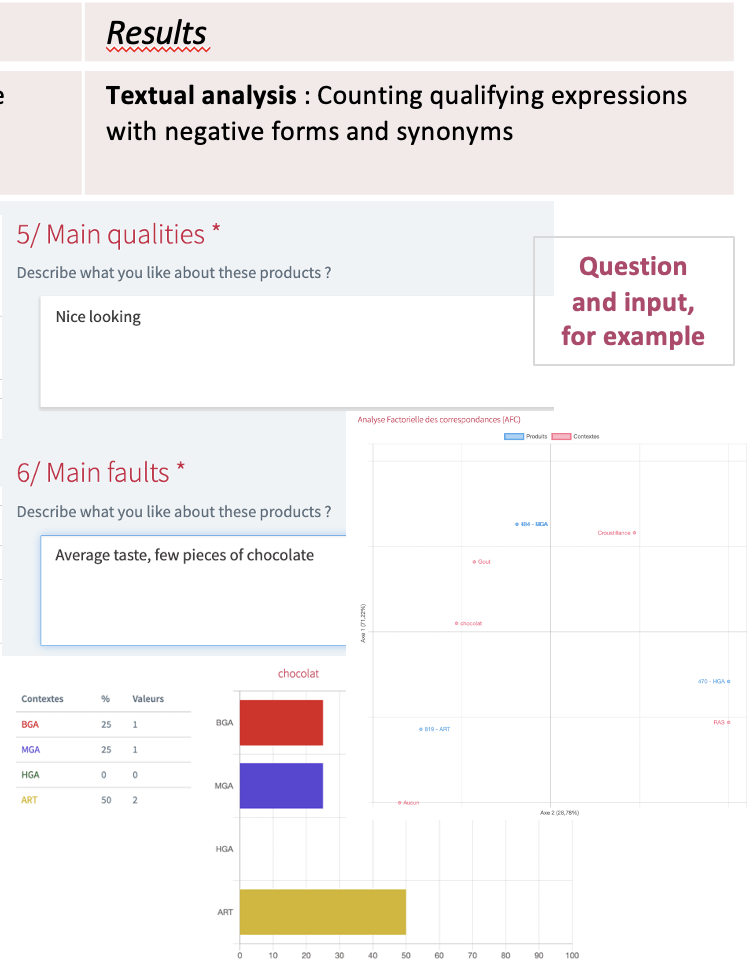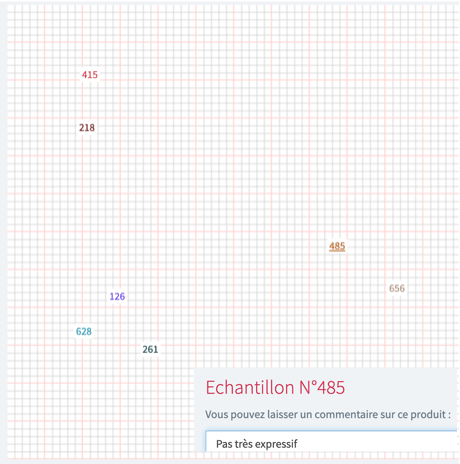INNOVATION TROPHY : the power of textual analysis !
The reasons for textual analysis
Who has not, during a wine tasting, been very frustrated not being able to express all these impressions with only a few intensity values on descriptors ?
On the other hand, we know very well how to express in free language, since wines are tasted, these memories of the encounter between the molecules of the wine and the sensory cells of the taster.
The main difficulty therefore lies in being able to process this free expression at the computer level
without having to spend a prohibitive time, to be able to group the originalities of each individual, and not to reduce too greatly the richness of the terms collected.

Tastelweb® makes it possible to process totally free expression !
Based on comments or, for example, faults or qualities requested in free text from the panelists, the frequencies of the most important qualifiers can be identified and calculated by product, almost automatically.
These results make it possible to describe and compare the products with each other in a completely open way, without these terms having been suggested beforehand to the panellists.

A technological leap for tasting
Being able to provide an easy-to-use tool for the session organizer and for the taster seems like a major step forward for the world of wine.
We cannot state all the applications of this collection in natural language, but we can still quote :
- The usual tastings of categorization of cuvées / level of qualities
- The improvement studies of oenological practices
- Tastings in the cellar between producers and customers
to differentiate and categorize wines
This tool can also be methodological assistance :
- To compile a collection of terms to be selected to constitute descriptors (intensity scale profiles - QDA)
- Build dictionaries to enable the training of panelists
- Serve as a knowledge base for experts or consultants to better understand their own vocabulary used.
A textual analysis available in the tests already known :
- Classic tests / QDA (descriptors with intensity scales) : possibility of dealing with the field of "free comments" and finally of having a real valuation of this field.
- Consumer tests: possibility of valuing the answers to open questions.
- Napping / Mapping : deal with the different comments that will characterize a group of products.



Future freeform tasting module : the winemaker's daily tool !
DIFFERENT LEVELS OF USE FOR THE OENOLOGIST:
Textual analysis will be the basis of these levels of use.
LEVEL 1 : my individual tastings, dailies can be entered on my smartphone.
I make a query of my database and can quickly compare my comments of the day with those entered at another time (on the same tank, on an adjacent tank, on another batch).
I archive and quickly find my different tastings.
LEVEL 2 : I taste in small groups (2-3 people).
I need to quickly have a summary of the various comments expressed.
I can quickly compare today's summary with previous ones (on the same tank, on an adjacent tank, on another batch).
I archive and quickly find my different tastings.
LEVEL 3 : I need, additionnally, to compare my results from my tasting on a tank with its analytical datas.
I export these different data in my traceability system (information system such as ERP, SAP, etc.).





